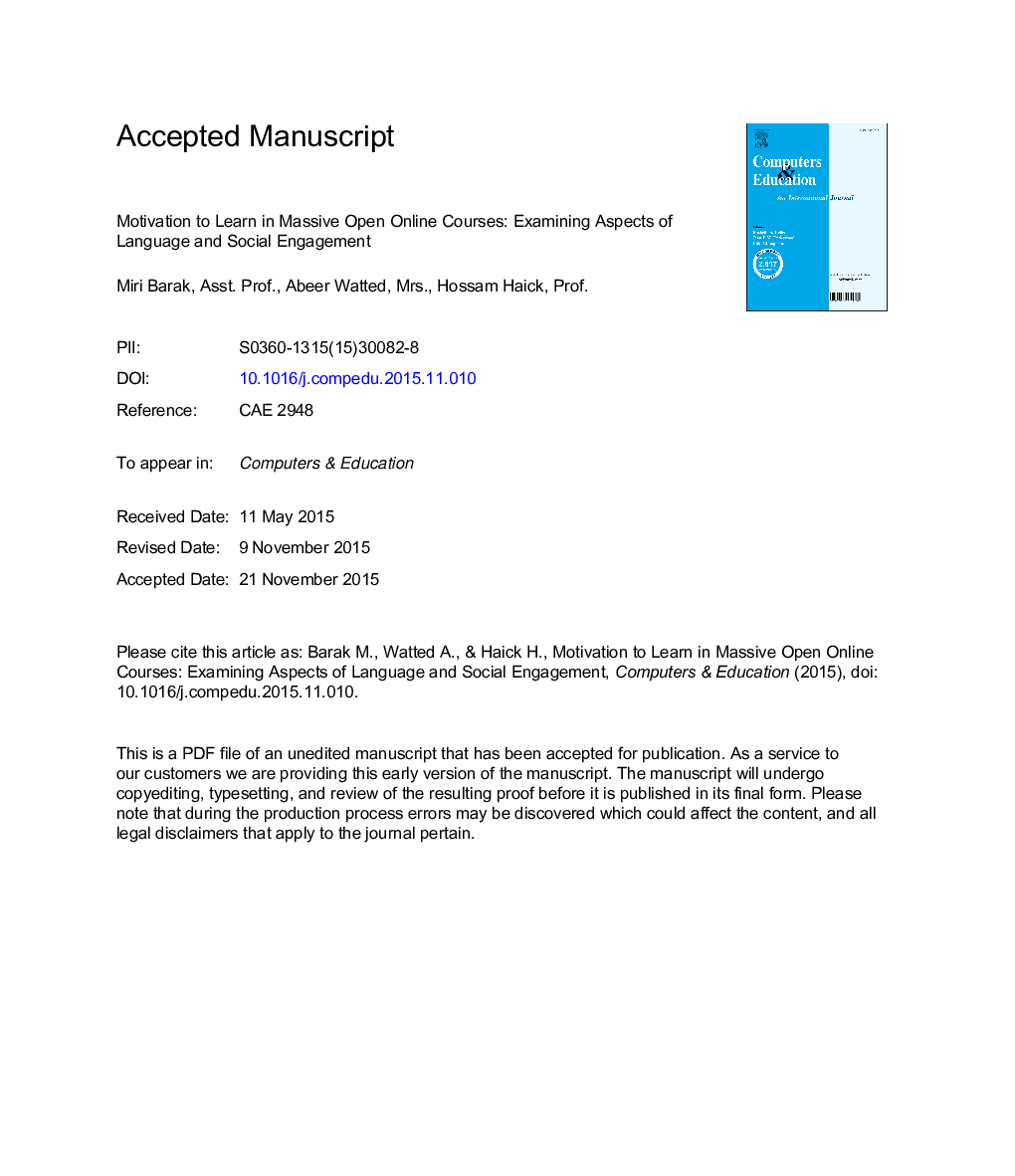| Article ID | Journal | Published Year | Pages | File Type |
|---|---|---|---|---|
| 6834935 | Computers & Education | 2016 | 36 Pages |
Abstract
Learning is mediated by language of instruction and social engagement. Both factors may play a significant role in understanding motivation to learn in massive open online courses (MOOCs). Therefore, the goal of this study was threefold: a. to compare motivation patterns of MOOC participants who study the same course but in a different language of instruction; b. to examine relationships between motivation gain and diverse modes of engagement; and c. to characterize MOOC completers according to their learning motivation. An exploratory case-study was conducted in the settings of a MOOC in Nanotechnology and Nanosensors, delivered in two languages: English and Arabic. The research sample included 325 participants from the English (NÂ =Â 289) and Arabic (NÂ =Â 36) MOOCs. The study applied the mixed methods approach, collecting data via pre- and post-questionnaires, forum posts, and email messages. Findings indicated that regardless the language of instruction, MOOC participants were driven to learn by similar goals, emphasizing intrinsic motivation and self-determination. Findings indicated a positive relationship between motivation gain, the number of messages posted to the online forums, and the number of members in the online study groups. Five types of MOOC completers were identified: problem-solvers, networkers, benefactors, innovation-seekers, and complementary-learners.
Keywords
Related Topics
Social Sciences and Humanities
Social Sciences
Education
Authors
Miri Barak, Abeer Watted, Hossam Haick,
